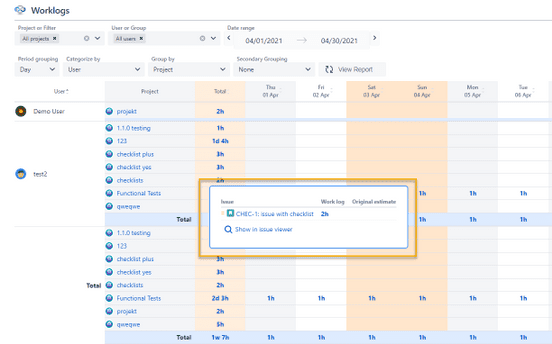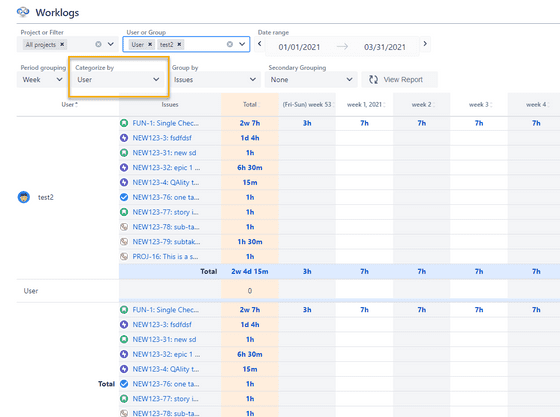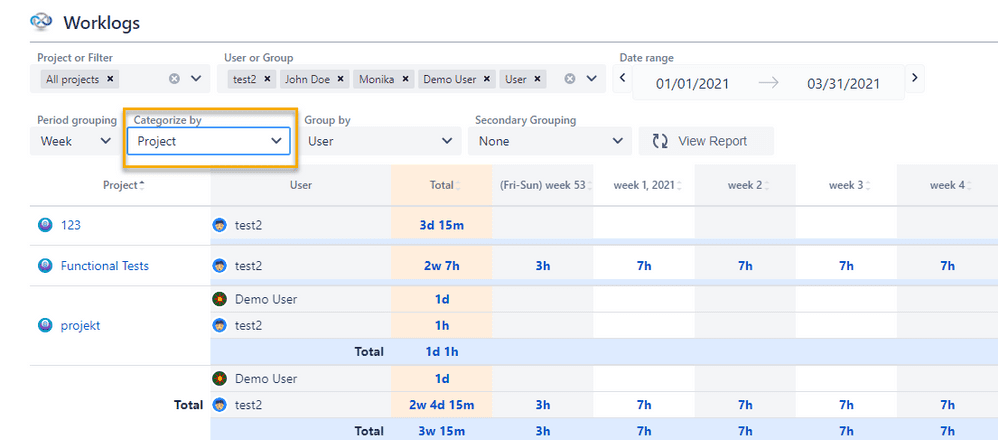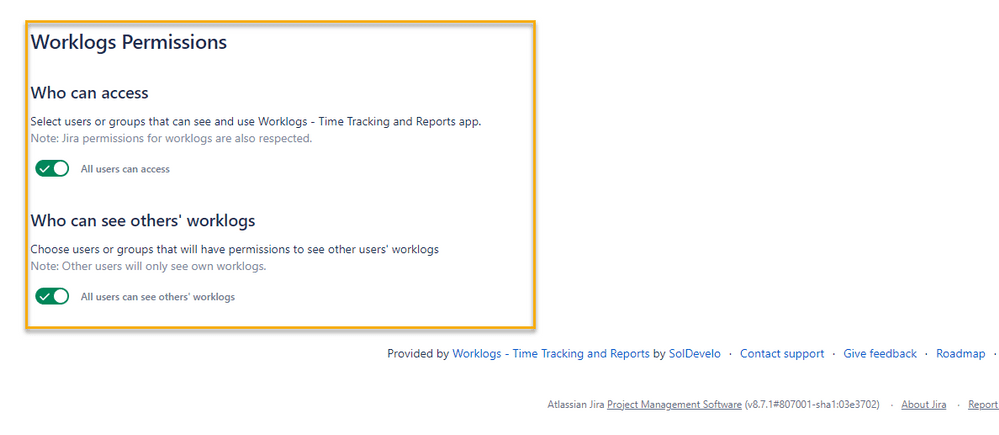It is said that good time management is the most important condition for a company to run smoothly. We couldn’t agree more! But the truth is that in order to manage time effectively, you have to track it. When there are many team members simultaneously working on several projects in Jira, it is inevitable to introduce reports for logged time – simply to show the amount of work each team member is performing over a given development cycle. Otherwise, when you do not track the time they spend on their tasks, their responsibilities may become ambiguous and you may get lost in what is done and what is not. And this, in turn, causes unnecessary delays.
If a manager knows how their employees spend their time, they can make the company’s workflows more efficient. Thanks to users’ logged time reports, it is also much easier to make successful future strategies as you are able to see how long a person really needs to finish a task. When armed with such knowledge, you can adjust the schedules accordingly and significantly lower the risk of not meeting your deadlines.
With reports of the logged time, you surely get a realistic overview of potential time-wasting problems – and you can react and address them before it is too late. When team members keep a record of the time they devote to a task, they are less likely to procrastinate and waste precious hours. Last but not least: tracking time per user simplifies paying salaries – especially if you pay yours by the hour. They, in turn, have a clear understanding of what is expected of them and try to organise their work time in an efficient way.
Jira and time tracking options
Of course, finding the right system for time tracking depends on your company’s unique needs. Jira, the most popular project management software, seems to be the most willingly chosen tool for this purpose as well. Unfortunately, time reports per user are not available natively there. The built-in reports in JIRA do keep the whole history of logged hours in a particular task, yet they don’t allow extracting the hours per individual – they just show the total hours on the task and every single work log added with no possibility of doing math on the raw records. However, there is a strong ecosystem built around the core product. In the Atlassian Marketplace, you will find many apps – both free and paid – that add lots of features to time tracking. They range from simple to complex full-featured reporting solutions.
If you want to keep track of how long you and your team actually spend on assigned tasks and stay on top of your project budgets, take a look at SolDevelo’s Worklogs – Time Tracking and Reports. Generally speaking: if you wish time tracking for individual members of your team was done in an easy and flexible way, it is a solution for you.
Tracking time made easier
Worklogs – Time Tracking and Reports enables you to generate reports of the logged time per user, including the ability to change period grouping and to drill down to specific single work log entries to check which tickets had the time logged. You can trace the wholesome time devoted to a particular project. You can also easily recall what task you or your team member tackled yesterday, last month or even a year ago. After installing and adding the add-on to your dashboard, you will be able to see the table displaying on the main page. Since the whole add-on is about time tracking, the table by default will present the time logged by all the members of all the projects in which you participate (in a set period). The worklogs page allows you to see exactly where hours were logged by clicking on the hour count. You can track the time you log into Jira tickets on a regular basis. Easily, you can also create more complicated, customized reports, such as team members’ full-time equivalent per sprint or total hours logged in a particular epic each week.

Generating per-user time reports
What’s also important is that when using Worklogs – Time Tracking and Reports, you are able to filter and group data in the way you find the most convenient. It all depends on your current needs and the way you want to find necessary worklog details. The most important advantage of the add-on is the option that allows you to filter the data by a user or a group. The default value is ‘All users’ but if you click on the select input, you may also list all the project members. Choose whose worklogs you want to display. There is a possibility of comparing work of a few team members by additionally choosing them from the list. What is more, you can compare worklogs of a whole group with someone’s individual logged hours.

By choosing a specified project from the list, you will see who logged time there, how much time they spent on it and when exactly it happened. All the filters adjust to the period that you pick. In case of the latter, you can limit your timeframes to e.g. just one day, search for hours logged from the start of a project or look at any other scope that works best for you. Your final view can be grouped by day, week, month, or year. Of course, it is also possible to apply a Jira filter and adapt it according to your individual needs. When you’ve got the Worklog report you need, you can share it and export it in the convenient XLSX format. Sounds pretty satisfying, doesn’t it?

Worklogs permissions
Ok, and one more crucial detail to bear in mind: the fact that Worklogs reports are so easy to generate does not mean they are so easily accessible by everyone in your team. In fact, as a Jira administrator, you can restrict worklogs’ permissions, depending on your needs. If you want, you may select and choose users or groups that will have access to worklogs. Similarly, you can choose users or groups who can see other users’ worklogs. So it is your decision how to set the access permissions that suit you best.

Summary
Worklogs – Time Tracking and Reports offer a simple and clear overview of the time spent on Jira issues. This tool will allow tracking logged work of your team members for different projects in an easy and flexible way. As you can’t generate a per-person report for a single project or ticket in Jira using the built-in report generator, our add-on proves especially helpful. It is a good way to control whether you or other team members logged the proper number of hours in a given time and introduce corrections or modifications if necessary.












